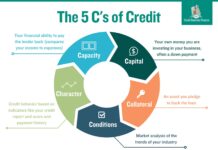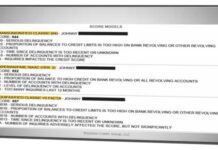Are you wondering which Debt Payments should you handle first?
Newport Beach, California – If you owe everyone and their mother money and are wondering who to pay first, this will help you prioritize the debt payments based on the consequences you face for not giving them the money they are owed.
Based on the information provided by many consumer finance experts and our own experiences in servicing tens of thousands of credit-challenged individuals, we have compiled a list of the debts and obligations that most people face and the order of importance for debt payments based on the repercussions for not doing so.
Back Child Support, Collection Accounts, Car Title Loans, Delinquent Mortgage Payments, Payday Loans, Medical Bills, Past Due Auto Loans, Income Taxes, Credit Card Balances, Defaulted Student Loans, Monetary Judgements
These can all be debilitating to your credit score and have lasting implications if not prioritized properly. Here they are in order, beginning with those having the worst consequences for not paying. The Government will help the agencies to recover the money. So, here we go:
1. Back Child Support.
This is the biggie as far as consequences. If you undue your debt payments can be found in contempt of court. For your financial exposure, they can garnish up to half of your wages. Not to mention, they can revoke your driver’s and other licenses. If you’re on unemployment, they can come after that as well. Your car isn’t safe either, as they can boot your ride. They can snipe your tax refund. For homeowners- the can even place a lien on your property. Jail isn’t out of the question, either. Public humiliation is even permitted in certain jurisdictions.
2. Income Taxes.
If you happen to owe back taxes, you are subject to extremely high interest and fees that rack up in a hurry. The money sitting in your bank account may not be safe, and you could wake up to a surprise $0 balance in your checking and savings account. The IRS can straight-up seize your property with a levy. Garnishing of wages is likely as well. Retirement accounts aren’t safe. The government may also sell assets such as your home or vehicle to cover your tax debts.
3. Car Title Loans.
Beyond having ridiculously high interest around 25%, if you don’t pay they are surely going to repossess your vehicle. After they sell your vehicle at auction, you could be responsible for the difference between what it sold for and what you owed on the loan — depending on the state you reside in.
4. Defaulted Student Loans.
A student loan will enter default after approximately 9 months of nonpayment. That being said, your credit score is affected negatively after the first 30-day late payment. Your wages can be garnished by up to 15%. Again, your tax refund can be snipe without court permission to do so. If they do get a court order, your student loan lender can garnish even more of your wages. Student loan debts that are federally subsidized cannot be included in bankruptcy which takes away an out for consumers.
5. Past Due Auto Loans.
Paying your normal car payment on time is critical and comes in as the 4th most important debt payments obligation. Recent late debt payments will not only kill your credit score, but you run the risk of repossession as quickly as 60-90 days after non-payment. Once again, if the auction proceeds don’t cover the loan amount, you could owe the balance.
6. Delinquent Mortgage.
On average, it can take almost 20 months for a bank to foreclose on your property, hence why ‘delinquent mortgage’ ranks below auto loans. For most of people a shelter for their family is more important than a vehicle. The reality is, that you have more time to straighten out your mortgage troubles than with a car loan. The damage caused to your credit by missing house payments is brutal, not to mention having to find a new place to live when no landlord or mortgage bank wants to touch you with a ten-foot pole.
7. Payday Loans.
The interest that piles up on these payday loans is crazy. Almost 400% if amortized out over a year’s time. If the interest doesn’t cripple you, the fees themselves will bring you to your knees. These companies love to sue people for nonpayment and at the very least will send you to a collection agency. You’ll have to look over your shoulder if it goes to collections as they could sue you as well. The lawsuit is likely to end in a judgement and show up in the public record section of your credit report. The usual wage garnishment is inevitable if you don’t comply with the court order to pay.
8. Medical Bills.
Aggressive collection attempts are largely predicated on how much you owe. Small balances may be overlooked by the hospital or clinic but large ones almost always result in a collection that will damage your credit until resolved in some manner. It’s important to note that if a $40 copay hits your credit report, it could impact you negatively in the same way as a $50,000 debt. Sounds wild, right? When it comes to the point loss on your credit score, it’s all about how recent the collection is, not necessarily the amount. Lawsuits are possible with medical debts as well.
9. Credit Card Balances.
Just like student loans, car loans, and mortgage payments — your credit is killed after the first 30-day late payment. Depending on the lender, typically after about 4-6 months, the creditor will charge off the account to collection efforts and potential lawsuits will soon follow.
10. Monetary Judgements.
If you have already been sued or just became aware of a judgement on your credit report, the creditor is likely going to do whatever it takes to collect on what they, and the court, feel is rightfully theirs. This includes liens and levies on the property you may own.
11. Collection Accounts.
Debts that are being collected by a 3rd party collection agency come in at the 11th, and final, spot. Collection agencies are known for being nasty and using scare tactics and threats to attempt to collect on debts. That being said, you have to negotiate power if you understand the statutes of limitations. In most states, 4 years is how long a creditor has to sue you for the due debt payments and get a judgment or court order to pay. The Statute of Limitations to report to the credit bureaus is 7 years. If the debt is new and has a larger balance, it carries a greater possibility of them taking you to court.
My Hope…
If you have experienced some recent hardship such as a job loss, death in the family, or even a divorce, my hope is that this article assists you in prioritizing your debt obligations. Knowing how to prioritize your debts is only half the battle following hardship.
The other is building and re-establishing positive, open, active credit. You may want to start with a secured credit card. After that, find a friend or relative to add you as an authorized user on a credit card. You will piggyback their positive credit and length of credit history. Be sure to only be added to a card that has been open for 2+ years, has never had a late payment, and has a balance below 30% of its limit. For instance, if the card has a $1000 limit, you want the balance to be below $300.
My hope is that this article helps guide you to make the best possible decision regarding your unique financial situation.
*** This article is not legal advice but rather a consumer guide based on information both publicly available and attained through our experiences as credit consultants***
As Always… In case you haven’t yet, here’s how you get started.
Step 1:
Tap or click here to get your $1 credit report. We’ll need it to do your credit analysis.
Note:
This is for a $1 7 day trial. You can cancel it in the first 7 days if you want, but we need this as a first step, in order to help you.
Step 2:
You will get a login and password for IdentityIQ when you set up your $1 trial. Go to this page on TheCreditMovement.com.Share your username/password for IdentityIQ in the form on the page.






















